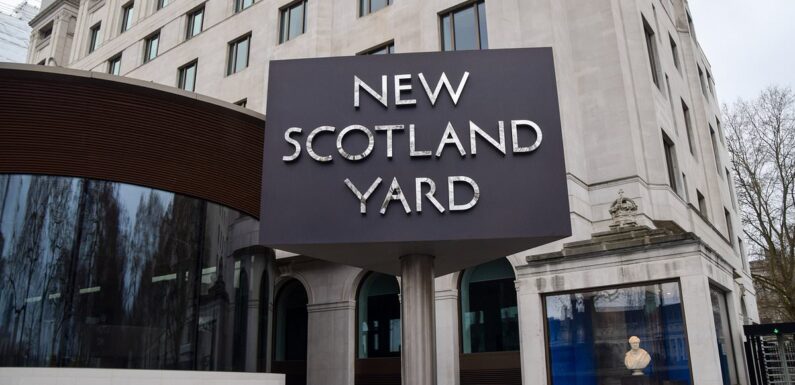
Met Police bosses ignored ‘expert concerns’ about sharing sensitive information before a massive security breach put all of its officers details at risk
Scotland Yard bosses ignored ‘expert concerns’ about sharing sensitive information with private suppliers before a massive security breach is feared to have put thousands of officers at risk, the Mail can reveal.
The cyber attack could expose undercover officers and enable criminals to impersonate police with authentic warrant card details, it was warned last night.
All 47,000 of the force’s staff and officers were warned their photos, names and ranks could have been accessed by hackers who broke into the computer systems of a contractor responsible for warrant cards and staff passes.
It has emerged that a Police Federation security expert warned senior bosses in July 2020 about sharing photos of counter-terror operatives and covert officers with third parties.
In his letter, he also expressed concerns about the sharing of information about key police witnesses in firearms incidents who have been granted anonymity.
The cyber attack could expose undercover officers and enable criminals to impersonate police with authentic warrant card details, it was warned last night (File Photo)
The response from the senior officer responsible for the contract failed to acknowledge these concerns, it was claimed, instead saying there were huge advantages to the plans, including improved security and easier replacement of lost or stolen passes.
The ex-head of Royalty Protection, Dai Davies, said the leak could expose covert officers and agents on secondment to MI5, providing criminals with their names and photographs.
Terrorists on the Dark Web could take advantage of the information to create authentic warrant cards that could be used to commit crimes, similar to how protection officer Wayne Couzens used his police ID to kidnap Sarah Everard off the streets of south London, he added.
‘This is a staggering security breach which could put officers’ lives at risk,’ Mr Davies said.
‘In the wrong hands this information could be incredibly dangerous. If this went for sale on the Dark Web terrorists and criminals could breach various levels of security.
‘Warrant cards grant access to some of the highest security buildings in the country. The consequences if this falls into the wrong hands is frightening. If you replicate a genuine warrant card you could use it to prey on the vulnerable.
All 47,000 of the force’s staff and officers were warned their photos, names and ranks could have been accessed by hackers who broke into the computer systems of a contractor responsible for warrant cards and staff passes (Stock Image)
‘You only have to look at Wayne Couzens. There is huge potential for this information to be abused in the wrong hands.’
Metropolitan Police Federation vice chairman Rick Prior said: ‘There is a huge amount of uncertainty. People are very worried, I’ve had people contact me saying they couldn’t sleep last night.
‘They are really concerned. They want answers. We still don’t know the extent of the damage – is this just a bit of a scare and nothing has been taken, or is it the other end of the spectrum and everything has been compromised?’
Staff were told about the hack on Friday evening as thousands of officers prepared for a major operation at the Notting Hill Carnival over the Bank Holiday weekend.
Sources said last night that frontline officers were told to focus on policing the carnival and their questions about the breach would be answered after the event.
‘It’s not good enough,’ the source said. The leak comes weeks after it emerged that data of 10,000 Northern Ireland police personnel was mistakenly disclosed.
A Met spokesman said it took extra security measures after its supplier was hacked, and had told the National Crime Agency and the Information Commissioner’s Office (ICO). The National Cyber Security Centre also said it would investigate the breach. The ICO said: ‘We recognise the potential impact on staff affected by this and expect swift action to be taken. We will be making inquiries.’
Source: Read Full Article

